Welcome to WordPress on Azure Sites. This is your first post. Edit or delete it, then start writing!
Hello world!
Welcome to WordPress on Azure Sites. This is your first post. Edit or delete it, then start writing!
OTTO Marketplace- Expand Your Fashion and Lifestyle Brand to Germany
Are you ready to take your US brand to the next level? Now is the time to expand into Europe through Otto Marketplace.
Here you will learn more about the most prominent fashion and lifestyle marketplace in Germany, Otto.de, and how your brand can be part of without hassles.
As a start-up since 1949, Otto has become Germany’s most significant fashion and lifestyle market. From starting as a mail order company to being one of the leading online fashion stores in Germany, with a clear focus on innovation and digital transformation. Otto set sail for a bright future a long time ago.
Otto marketplace recent results:
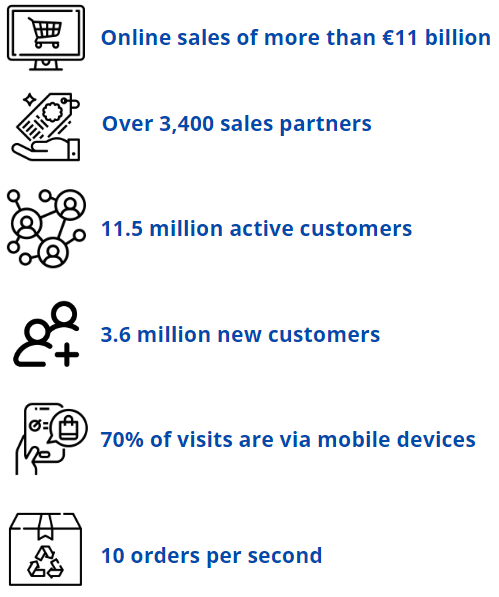
Germany Online Fashion Category: In 2021, Otto was second on the list of the top online fashion stores in Germany, with sales of $1.9 billion.
Germany Online Furniture & Homeware category: Otto is Germany’s leading online marketplace, with net sales of 1.5 billion euros in 2020, and is also one of the top players in growth.
Technology and Customers: The heart of the company
We know that being an online brand, technology and customers is the most critical part of the equation to be profitable, competitive and grow. Otto understood and implemented these two components correctly to achieve massive results.

Otto believes that technology is the key to fulfilling the wishes of its customers and accompanying them into the future, making it a recipe for success.
Technology is used to being close to its customers because they want to understand their wishes and fulfill them in the best possible way.
Inspiration is an essential element for an excellent customer experience. Otto now sells more than just products; it offers lifestyles visible throughout its website, apps and social media.
It is not only essential to excel in creating a portfolio of products that customers notice and find attractive to complete a transaction instead of simply browsing, but it is also equally important to have operational excellence. Technology plays a key role, including regular optimization of their tools and software, maintaining and improving all processes necessary to run the business.
Some initiatives taken to enhance the customer shopping experience are:
- Computer-generated images
- Augmented reality
- Digital image searches in the shop
How about the App?
The Otto app was created to put the customer at the heart of their actions, focusing on their needs to create the most pleasant online shopping experience. From the moment the user browses the app, makes a transaction, receives the package to the after-sale experience. Otto takes care of every phase of the purchasing cycle in the best possible way and creates happy, loyal customers.

Smooth & reliable customer care
The Otto customer service team is there for its customers. They can be easily reached by messenger, email, or callback service. You do not have to worry; once they reach out to the customer, they get a push message. It just can’t get any easier than this!
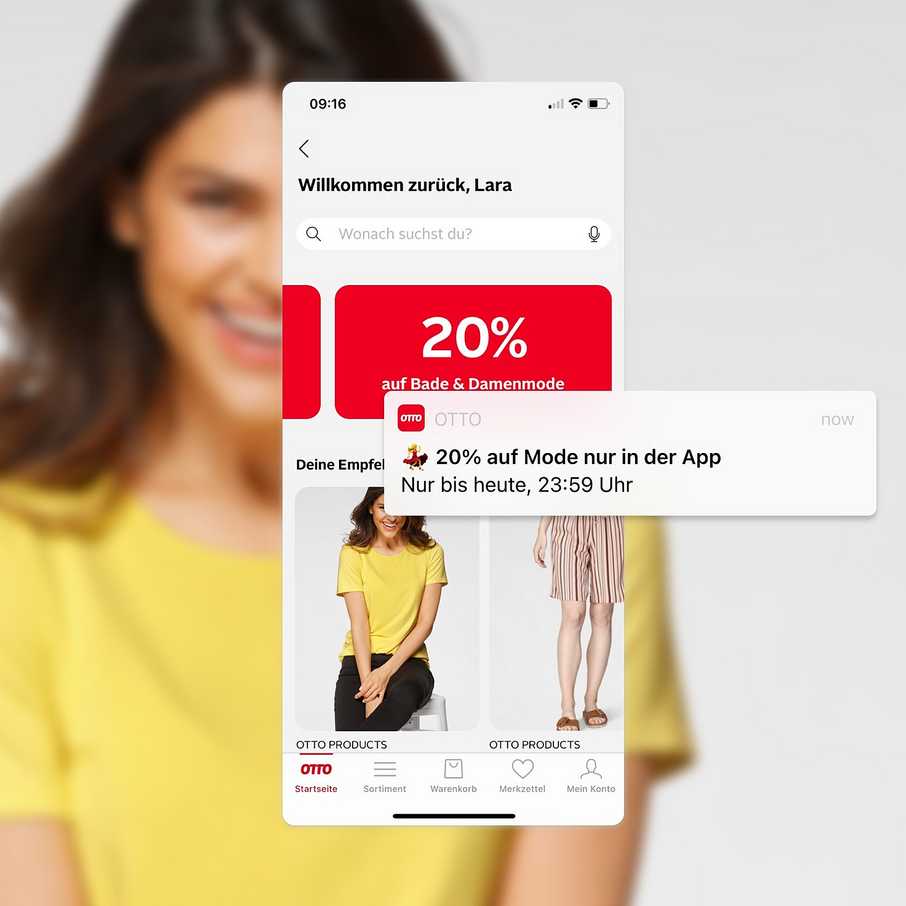
A lover of discounts and promotions?
Otto offers exclusive discounts and promotions in the app from different brands, fashion, living, multimedia and more. These run for a short time and exclusively in the app. Customers with activated push messages get informed, so they do not have to worry about missing any specials.

Don’t miss out on any shipment information.
With the Otto app, customers receive information about their order until it is delivered. They receive up-to-date information directly on their smartphone via push messages.
What would a successful & innovative brand be without caring about the present and future of the environment and society?

Otto’s vision is “Responsible commerce that inspires,” which is incorporated into everything they do.
This marketplace stands for the human side of e-commerce and believes this is only possible through solid and sustainable business processes that focus on the future.
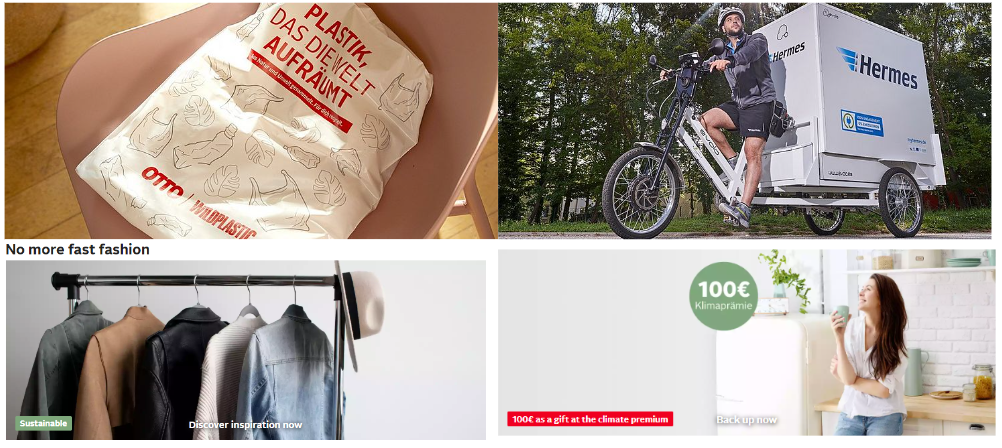
Some sustainable e-commerce actions Otto has taken are:
- Search for alternative packagings, such as 100% recyclable polybags, recycling bags and recycled cardboard.
- Initiative to encourage consumers to donate by offering free shipping from the consumer’s address to Hermes ParcelShop and a voting system where consumers can choose their preferred charity institution.
- Content on Otto.de educates consumers on how to incorporate sustainability into their daily lives.
- Provides virtual dressing rooms for customers to choose their size more accurately to lower the impact that returns have on the planet.
- A code of ethics that brands should follow goes along with EU regulations to encourage brands and consumers to improve sustainability. For example, sustainable raw materials like cotton and wood from certified forestry are used.

With everything Otto offers consumers, it has built a highly successful e-commerce platform for fashion and lifestyle products and a positive reputation in Europe and the rest of the world. The massive growth and results show the importance of the Otto marketplace in the e-commerce industry in Germany and Europe. Learn more about the German market in our blog “Germany – The Biggest Online Market in Europe.”
Without a doubt, it’s the way to start your brand’s expansion journey in Europe and open the door to millions of active and new customers that Otto marketplace has to offer. Europe is waiting for your unique US brand.
Now the question is… How can your brand be part of Otto Marketplace?
BorderGuru, as part of the Otto Group, offers your brand the Marketplace Partners Solution. This allows US fashion and lifestyle brands like yours to be part of Otto marketplace to expand into the German and European markets. We offer brands the tools to broaden efficiently into this marketplace and allow them to succeed.
With our solution, you will have exclusive access without needing any middleman to Otto Marketplace. Having a single partner to expand into a new country will make it smoother and easier for you.
Contact us now to begin your expansion journey! Europe is waiting for your brand.
Third-Party Logistics Companies (3PLs) – Advantages and Disadvantages
When you think of your business’s logistics, you might say that it is a complex process that depends on your infrastructure and can take many business resources (cost, time, labor). This is one reason why Third-Party Logistic Companies (Commonly known as 3PLs) exist. When businesses are growing and the number of orders surpasses the ability to handle it in-house, they may look for outsourced logistics.
3PLs are not a fit for all businesses, so here we show you the pros and cons to consider before deciding if it is a fit for your online store. Lastly, we talk about how we can help your business grow whether you work with a 3PL or not.
Definition of 3PL
A partner or service hired by a business to outsource its logistics. 3PLs offer e-commerce merchants full warehouse and supply chain management for inventory and order fulfillment.
In simple terms, it supports some or all aspects of a business’s shipping operations, everything that has to do with moving goods from manufacturers and distributors to the end customer.
These are more specific tasks that 3PL performs:
- Scheduling and executing the receiving of inventory to the warehouse
- Sorting, managing and accounting for all inventory
- Maintaining inventory in proper conditions
- Negotiating discounted shipping rates
- Picking, packing, and shipping products, kiting and assembling products if necessary
- Managing recurring subscription boxes (if applicable)
Advantages
Scalability: With the expertise and resources that 3PLs have, they can optimize the logistics needs of companies, for example, to grow in new areas with much less effort, clearing the path for enhanced business growth.
Time and cost savings: Since 3PLs focus on everything included in logistics, they have the resources and time to continuously update and improve their services, such as software and specific training for their employees. These can be cheaper than a company that manages all the costs to keep up with the latest logistics. 3PLs can also free up key employees to focus on manufacturing, strategic planning and operational processes that enable business growth.
Expansion: There are two ways of expanding, first within the country, like other states, for example, from the west coast to the east coast. This can be easier with a 3PL, as they tend to have distribution centers and warehouses closer to your end customers. And the other is to expand internationally, which can lead to many hurdles and additional costs if carried out alone. Most 3PLs have distribution centers and warehouses with accreditation to provide global services, making expansion more accessible.
Disadvantages
Loss of control: Working with 3PLs can be beneficial, as already mentioned, but at the end of the day, they are an outsider of your company, so you entrust control and responsibility to them. This is a disadvantage because your company has no last say in all matters. Sometimes it can be challenging to get the attention you seek, as your business is not the only one they work with. Decisions by 3PLs directly affect customer satisfaction, so brands need to ensure that the 3PL they choose is suitable for their business needs.
Upfront costs: Yes, using a 3PL can save you costs in the long run, but you should be aware that there are considerable costs to start. For example, if you already have an internal logistics team, making the switch leads to upfront costs for your business. Make sure these costs do not limit your business. As if it did, it might be better to wait until you are financially more stable. Another aspect to remember is that your business has little or no influence on the partnership between 3PL and a courier. If this agreement is not cost-effective, it could impact your business.
Transparency and communication: When working with a 3PL, you not only give out control of your logistics, but now you also have a middleman to deal with if you have problems and need to communicate to get the information you need. As a brand, you would have to make sure you work with a reliable company that has a simple communication process with brands. So, if any logistics problem arises, you do not have to wait for answers. Remember that poor communication can lead to obstacles to smooth supply chain operations.
Syncing up systems with a 3PL provider: It is usual for two companies to work with different designs and have their way of working. Integration can initially seem complex, but if done correctly, this is just a short-term disadvantage. Before working with a 3PL, you should consider interoperable technology and even a person from your company who knows IT well to make this process smoother.
As can be seen, working with a reliable 3PL company can bring your business benefits, which could be more time-consuming and expensive to do alone. On the other hand, there are also disadvantages when deciding if third-party logistics is suitable for your business.
Now, when it comes to the international expansion of your brand, that is where BorderGuru comes in to assist your business in achieving its goals. Since Hermes Logistics powers us, we offer a cross-border solution that eliminates the disadvantages you may face selling internationally. Even if you work with a 3PL, we can integrate into their business model and become a strategic partner to your brand.
Contact us now to help you achieve your international sales goals!
Spain, Italy & France Holidays 2022: Get Your E-commerce Brand Ready To Succeed
The most important holiday time is here, and if you run an e-commerce brand, you know that preparing a promotional calendar for marketing and shopping events is essential to achieving sales targets, whether locally or internationally.
Let’s not forget that the most successful brands plan their participation in promotions and sales events well in advance. For this reason, we share the most popular holidays between October and January in Spain, Italy, and France. You will not miss any chance of succeeding in these markets.
If you are interested in finding more tips to prepare your business for the holiday season, check out our “6 Tips to Prepare Your E-commerce Store for Holiday Season.”
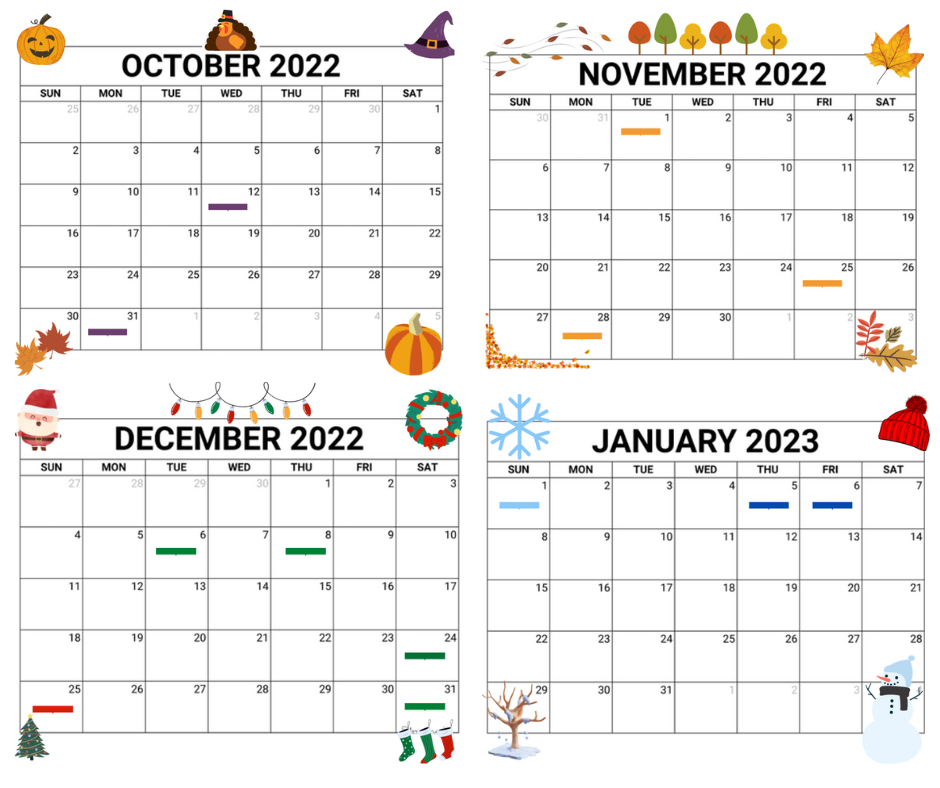
Holidays in France, Italy, and Spain
October
31st Halloween: Halloween is celebrated pretty much the same as in the US, with parties, festivals, pumpkin carving, and trick-or-treat. The difference is that it is not as big as in the US, but it is a time when brands can use it to promote their products with related Halloween themes and create new discount offers.
November
1st November All Saints’ Day: People celebrate this day by going to church and visiting their loved ones who passed away in the cemeteries. This is a time to be surrounded by family.
25th Black Friday: This US holiday, a particular time to buy products at discounted prices, has become popular in many places worldwide. Consumers in these European countries are used to these holidays. This is an excellent opportunity for US brands to take on these markets.
28th Cyber Monday: Cyber Monday is a popular time to find discounts and bundles from many online stores. For new brands that want to expand into these countries, it is the perfect time to get on the wagon and create brand awareness to enter any of these markets and start selling.
December
24th Christmas Eve is celebrated in these three European countries with a traditional meal surrounded by the closest family members. There is gift giving, and some go to church. US brands must be prepared for this day, as it is the most profitable holiday of the year.
25th Christmas Day: Children can open their gifts left by Santa and families to visit relatives and friends and relax on this day.
31st New Year’s Eve: As in other Western countries, this day is celebrated with parties accompanied by their loved ones. It is the start of celebrating the end of the year and the start of a new one. After Christmas, your shop should be ready to promote the New Year through campaigns on how your products contribute to goals, goals, and new beginnings.
January
1st New Year’s Day: This day is for people to relax and visit relatives and friends. People also prepare for the new year and what is coming ahead.
5th Winter sales: Winter sales begin mainly in the first week of January and can last up to eight weeks. This is the perfect time for discounts on winter clothes and selling everything left of winter items. It is also time to prepare to introduce new seasonal products with special prices, bundles, or gifts to start the year on the right foot.
In addition to the holidays mentioned, do not forget the following, which are specific to each country. And they are essential for brands to boost their sales this holiday season.
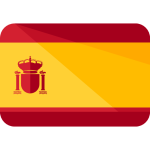
Spain
October
12th Spain’s National Day: This is a holiday to enjoy time off work with family and friends. There is a national parade in Madrid, where the King participates in raising the Spanish flag while the Prime Minister leads the procession. The Spanish Air Force acrobatics team, the Patrulla Aguila, also displays an aerial display.
December
8th Immaculate Conception: This day signals the start of the Christmas season. This is celebrated mainly in Seville at the Plaza del Triunfo, where musicals and people are dressed in traditional clothing. For foreign brands, this is the day they could launch more robust Christmas campaigns to prepare people for their Christmas shopping.
January
6th Three Kings’ Day: This is a significant celebration for the Spanish, especially the children, as they receive the most gifts. Their favorite King is Baltasar, who rides a donkey and leaves the facilities. Yes, on the 25th, there are gifts for children, but the primary date for it is this one. It is essential for brands to consider this to have their stores ready for sales and to advertise and communicate properly and timely to not miss out on this opportunity.

Italy
December
8th Immaculate Conception (Immacolata): This day is the beginning of the Christmas season for many Italians; time to decorate their house with Christmas trees, lights, etc. And that also signals the start of Christmas shopping. From here, brands can advertise their products for Christmas presents in time and start with special offers for this particular time of year.
January
6th The Epiphany: The Italians have two different representations of this day. The first is Befana, a witch who brings sweets to children; in Catholicism, it is the Day of the Three Kings. In the cities, you can see the scenic decorations of the Three Kings and the character Befana, mainly in pastries and candies. There are many activities for families and children around the city. Foreign brands can use this holiday more to raise brand awareness through communication campaigns about the holiday.

France
December
6th Saint Nicolas’ Day: This holiday is an addition to Christmas and is celebrated in some parts of France as the feast of Saint Nicholas. This focuses more on the traditional representation of St. Nicholas than on the older man wearing red and white as we know him. On this day, it is believed he distributes little gifts and sweets. Also, there are parades and Christmas markets.
January
6th The Epiphany: In France, people celebrate the three wise men surrounded by family and have a special cake called “galette des Rois” (Kings’ cake). People go to work and school on this day, so they celebrate this day by eating cake. It is also the end of the Christmas season.
Mark your calendars! Remember that these holidays are special for everyone after two years of the pandemic. So, are you ready to take your business to the next level this holiday season? Increase your international sales by expanding into Europe without complexities.
BorderGuru, as part of the Otto Group, offers you the opportunity to enter the European market by aggregating and accelerating your brand’s growth in the most prominent marketplaces, such as Otto, About You, Zalando, and many more.
Do not miss this opportunity; contact us now!
South America Holidays 2022: Mark Your Calendar & Get Ready for the Busiest Time of the Year
The holiday season is the busiest shopping time of the year, and e-commerce US brands interested in the South American market can use this time to boost sales and brand awareness.
In South America, countries such as Brazil, Chile and Argentina during the holiday season in spring from September to summer from December, which is different from the northern atmosphere. Please take note of this, as the products offered this time are other due to the southern atmosphere not being in winter.
Mark your calendars for the critical retail holidays, and do not forget to check our blog, “6 Tips to Prepare Your E-commerce Store for Holiday Season,” for additional tips to get ready to take on the South American market.
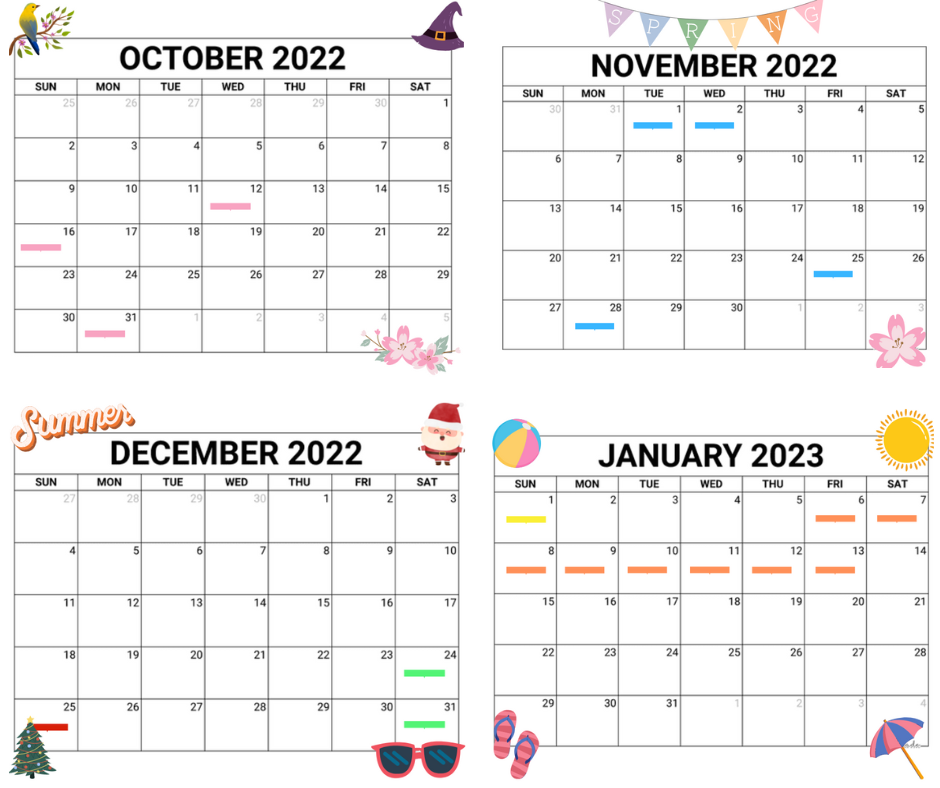
Holidays in Brazil, Chile and Argentina
November:
25th Black Friday: It is a celebration in the USA, which has been well established in these three countries. Now, consumers wait for this day to buy their most desired items at lower prices. They search the web for offers and special bundles. This is great for US brands that want to capitalize on this market.
28th Cyber Monday: This holiday is the same as in the US. It is only for online shops, and Brazilians, Argentinians and Chileans consumers are well aware of it and expect to find discounts from brands over the Internet.
December:
24th Christmas eve: Christmas is the most profitable time for online and offline businesses. As these three countries are located in the south, this is the beginning of summer. It is essential to consider this, as the products sold during this season must be for summertime. On this day, they have their big dinner at night, and the party can last until the following day.
25th Christmas day: On this day, children open their gifts. It is time to spend time with the family and relax.
31st New Year’s Eve: This day is to celebrate with loved ones, and most Brazilians, Argentinians and Chileans go to the beach as is summertime. Businesses should start getting ready for the summer sale that comes in January.
January:
1st New Year’s Day: A day to relax. Most people stay at home or visit relatives to wish them a happy New Year.
7th – 13th Summer sale: January sales begin immediately after Dia de Reyes. Here is the time for brands to push sales by promoting summer items and new products that look towards starting a great new year.
In addition to the holidays mentioned, do not forget the following, which are specific to each country. And they are important for brands to boost their sales this holiday season.

Brazil
October:
12th Children’s Day: This is a perfect holiday for businesses. It is the time when they try out the market to see how the end of the year economy will be for the Christmas season. Some schools give the children a week of vacation and usually receive gifts from their parents and other loved ones. Brands should have deals on items from toys to apparel.

Chile
January
6th Dia de Reyes Magos (Wisemen’s Day): This day is celebrated by children leaving a letter or shoe to receive gifts, and then families have a special bread called “Rosca de Reyes.” For this holiday, the presents are for children.

Argentina
October:
16th Mother’s Day: Even though the date differs from the one in the USA, the celebration is similar. This day is to give gifts to mothers and celebrate them. Brands should focus on promoting products for moms.
31st to 2nd November Cyber Monday: This day is similar to the USA, but the difference in Argentina is that it extends until around the 2nd of November, as the government looks to promote online shopping. This can be an opportunity for US brands to have more time to push and boost sales in this market.
January
6th Día de Los Reyes Magos (Wisemen’s Day): This day is celebrated by children leaving a letter or shoe to receive gifts. Then families usually gather for lunch and in the evening have a special bread called “Rosca de Reyes.” For this holiday, the presents are for children, so they are the primary market to focus on.
Be ready for these holidays in 2022! Mark your team’s calendar and be prepared to offer your international customers in South America the best possible shopping experience. From marketing to logistics, we suggest you be prepared 100%.
We know that offering an excellent shipping experience can have some difficulties, so we at Borderguru are here to help you achieve it without obstacles. We are a company powered by Hermes Logistics, and with our cross-border solution, you can offer your customers customs-cleared orders by calculating taxes and duties at checkout.
Let us help you succeed in these holidays! Contact us now and start selling to the South American market.
2022 Holidays, gift giving and online sales in Germany, Netherlands and Poland
The most exciting and popular time of the year is around the corner. Holidays from Halloween to Christmas and New Year are the most profitable for businesses and are celebrated worldwide. For this reason, we share the most popular holidays in Germany, the Netherlands, and Poland. Mark these dates in your business calendar so you don’t miss the potential to increase your international sales.
If you would also like to find out more tips to prepare your business for the holiday season, check out our blog, “6 Tips to Prepare Your E-commerce Store for Holiday Season.”
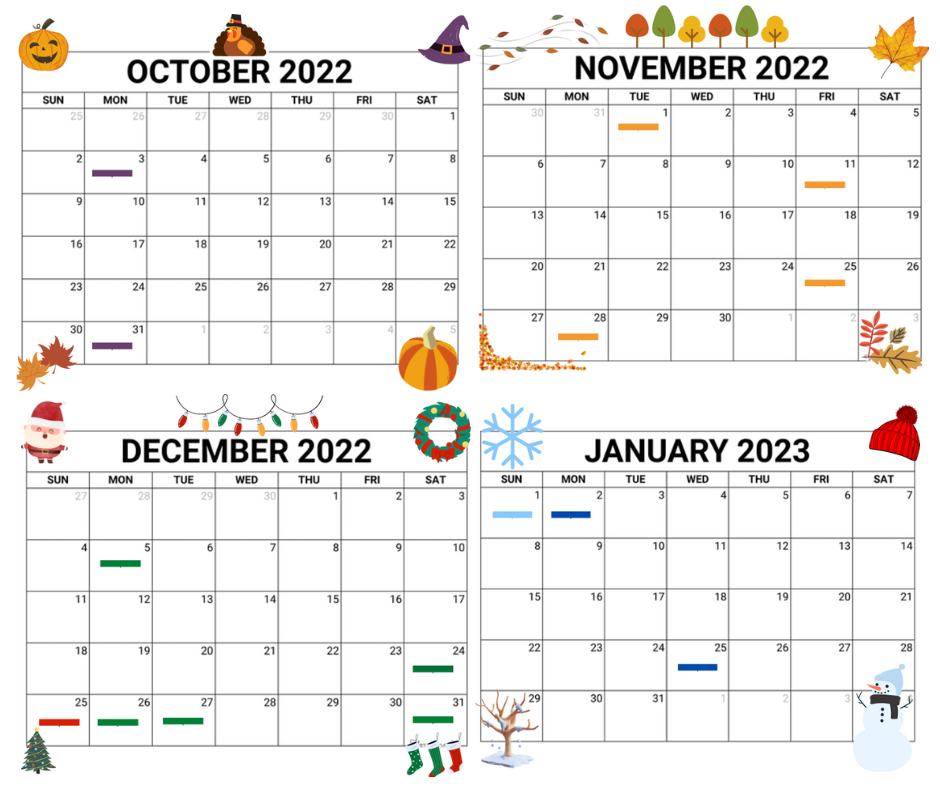
Holidays in Germany, Netherlands, and Poland
October
31st Halloween: Halloween is celebrated pretty much as in the US, with parties, festivals, pumpkin carving, and trick or treat. The difference is that it is not as big as in the US, but it is a time when brands can use it to promote their products with related Halloween themes and create new discount offers.
November
25th Black Friday: This US holiday, a particular time to buy products at discounted prices, has become popular in many places worldwide. Consumers in these European countries are used to these holidays. This is an excellent opportunity for US brands to take on these markets.
28th Cyber Monday: Cyber Monday is a popular time to find discounts and bundles from many online stores. For new brands that want to expand into these countries, it is the perfect time to get on the wagon and create brand awareness to enter any of these markets and start selling.
December
24th Christmas Eve: This day is celebrated with a traditional dinner with the family and the opening of presents. In Germany, families have traditional meals, for example, potato salad with sausages. Some people celebrate this day by decorating their homes and having ugly sweater parties; others attend church. It is an excellent time for US brands to market bundle products and Christmas-themed items, and they should prepare their online store so that their customers can receive their orders on time.
25th Christmas Day & 26th Second Christmas / St Stephen’s Day: These days are spent with family and friends, especially the ones you did not meet on Christmas Eve. They are more laid back to continue celebrating and relaxing.
31st New Year’s Eve: As in other Western countries, this day is celebrated with parties accompanied by their loved ones. It is the start of celebrating the year’s end and the start of a new one. After Christmas, your shop should be ready to promote the New Year with campaigns on how your products contribute to goals, aspirations, and new beginnings.
January
1st New Year’s Day: A day to relax. Most people stay at home or visit relatives to wish them a happy New Year.
In addition to the holidays mentioned, do not forget the following, which are specific to each country. And they are essential for brands to boost their sales this holiday season.

Germany
October
17th September – 3rd October Oktoberfest: A massive holiday for the Germans, where Bavarian culture is celebrated. The main things they do are the big Munich festival, wearing traditional Bavarian clothes, drinking beer, and eating traditional foods such as sausages and pretzels. Foreign brands focus on finding a way to connect their product with tradition and raise brand awareness. This is for brands to stay current and not miss out on the potential this holiday can have on sales.
3rd German Unity Day: It is a national day on which Germans celebrate the unification of Germany after the fall of the Berlin Wall. On this day, there are festivals with music and food, such as Independence Day in the US. In marketing, brands tend to create marketing storytelling campaigns around the subject to connect with consumers.
November
1st All Saints’ Day: This holiday used to be celebrated mainly regionally in the south and west, but today more parts of Germany celebrate it. This is the celebration of people who have died; families visit the graves of their loved ones with unique flowers and candles.
January
25th – 5th February Winter sales: This is a time for brands to prepare, as it is one of the biggest sales seasons for winter clothes, and to introduce new products related to the new year’s goals, such as travel goods, gym clothes, and contemporary fashion styles.

Netherlands
November
11th Sint-Maarten: This traditional holiday looks like Halloween, as children walk door-to-door singing songs and get candy in return. They also make lanterns and bonfire celebrations and parades in the main cities. This holiday is not as commercial as Halloween. However, you could use it to raise brand awareness by posting on social media and creating product offers.
December
5th Sinterklaas: This is a Dutch holiday that focuses primarily on children. Sinterklaas is a white, older man with a long white beard and hair, a red miter, and a red cloak. He rides a white horse and has many helpers, like Santa Claus. This day is celebrated with children leaving a shoe in front of the fireplace the day before, and on the fifth, children sing songs and open their gifts in the evening. Adults organize a fun night full of crafts, presents, and poems.
Brands should be aware that this is the time for children to receive their presents. It is therefore essential to have everything ready and advertise their products for this holiday, as it is an important time in the Netherlands and an excellent opportunity for brands to enter or grow their sales in this market.
27th start of Winter Sales: Right after Christmas, winter sales begin; this is a great time to prepare for the New Year and get all the old stock for sale.
January
The whole month of Winter Sales: Winter sales continue, and a time to market products related to New Year’s goals and expectations, such as travel, health and fitness, and a new look.

Poland
November
1st All Saints’ Day: This day to remember the relatives who died. On this day, Poles gather in cemeteries and take flowers and candles to their loved one’s graves. This is a holiday spent with family, remembering stories of the ones who have left this earth.
11th Independence Day: This day is celebrated like the Fourth of July in the US, with concerts, parades, fireworks, and parties. During this time, most shops are closed, and it is time for friends and family to enjoy themselves together and celebrate their Polish heritage.
January
2nd January till 13th February Winter Sales: Winter sales in Poland last up to February. During this time, brands have discounts and special offers on winter items, and as soon as January ends, it is a great time to prepare for the launch of new products for the New Year.
As the holidays get closer, it is the perfect time for your brand to expand its international footprint and have a higher chance of successfully entering. The holiday season after the pandemic is more special than ever, so it is even more profitable, as consumers look forward to buying unique gifts for their loved ones and themselves.
Do you want to know how to expand successfully and without hurtles into Europe? We are the answer. BorderGuru, as part of the Otto Group, can offer you a service called Marketplace Partners Solution that provides your business with all the tools your brand needs to enter the most famous European marketplaces, such as Otto, Zalando, About You, Bol and others.
Contact us now!
Top 10 Tips to Successfully Sell through Cross-border
As mentioned in our blog “Cross-Border eCommerce – The key to international growth,” e-commerce has been growing continuously. Sales have increased by US$1.57 trillion from 2019 to 2021, and this positive trend is expected to continue in the following years.
As the lines between geographic borders in e-commerce get blurred, it gets easier for customers to purchase products from across the world, increasing the possibilities for US brands to broaden their international footprint.
Considering the positive growth trend that cross-border e-Commerce has, we created a list of Top 10 tips to sell cross-border successfully.

1. Market research
Before deciding on selling internationally, it is essential to research your potential customers to provide the best possible experience with your brand, products and website.
These are three things to consider:
-
- Products: Research and look into the products your potential clients are most interested in, and also check if you need to make any changes to appeal more to their taste and cultural customs.
- Culture: Research the country your potential clients are from regarding their culture to avoid misunderstandings regarding your product or brand name, colors used, and communication style.
- Language: Although many international customers are bilingual and fluent in English, localizing your shop in terms of language, pricing, etc., can significantly benefit your business and differentiate you from your competitors. It also helps offer localized customer service, when possible, for a better customer experience.

2. Brand awareness & trust
Building brand awareness and trust is the key for your potential international customers to get to know your brand and your products.
Here are some actions you can take to build awareness and trust:
-
- Create organic content using SEO and posting on social media
- Post reviews and testimonials
- Create videos of your product: how to use it, tips, features, and how your customers use it
- Paid ads on Google and social media to specifically target your intended market

3. Pricing
It is crucial to search the price of similar products from your competitors, from the country or countries to which you want to sell your products, and also to be aware of the additional costs that need to be added to the final price. This way, you can ensure that it is profitable to sell in the intended country/countries and if your prices are competitive.

4. Payment options
Offering only the forms of payment popular in your local market is not enough to appeal to your international visitors. Our advice is to research the most commonly used payment methods by your target visitors or in the countries you are selling to. For example, in Europe, paying with Apple Pay, Google Wallet, PayPal, or bank transfer is very common. It is, therefore, a matter of finding out what your visitors use for online payments and offering them to increase your chances of succeeding.

5. Multi-currency account
A multi-currency solution and offering the option to pay in local currency on your website can save you headaches and provide a better user experience. Being transparent with your customers regarding prices could help your business in the long run; customers appreciate localization even if exchange rates are not in your hands.
![]()
6. Packaging
Another aspect to consider is the type of packaging that you will use to avoid higher shipping costs and be more cost-efficient and sustainable. For example, you can recycle old boxes, paper bags, or paper sheets as a protective material for packages and use mailer envelopes or poly bags for small non-fragile items like clothing.
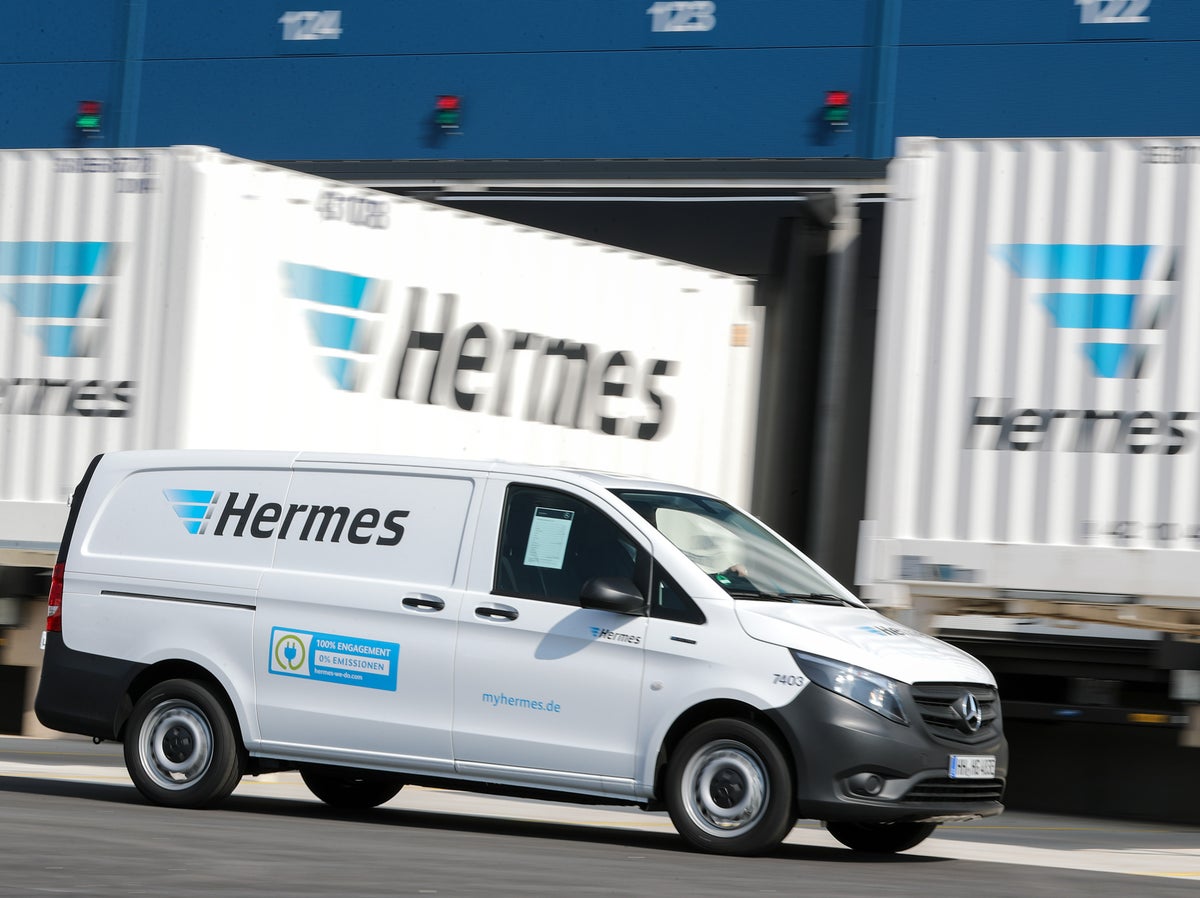
7. Shipping
Shipping costs and delivery times are crucial for the success of your online business. Finding a shipping service suitable for your company that can offer you competitive prices and excellent quality service can be your competitive advantage.
Also, displaying clear and concise information will help you be transparent with your customers, build trust and avoid unsatisfied customers, misunderstandings about shipping fees and delivery times, and not miss repurchases.
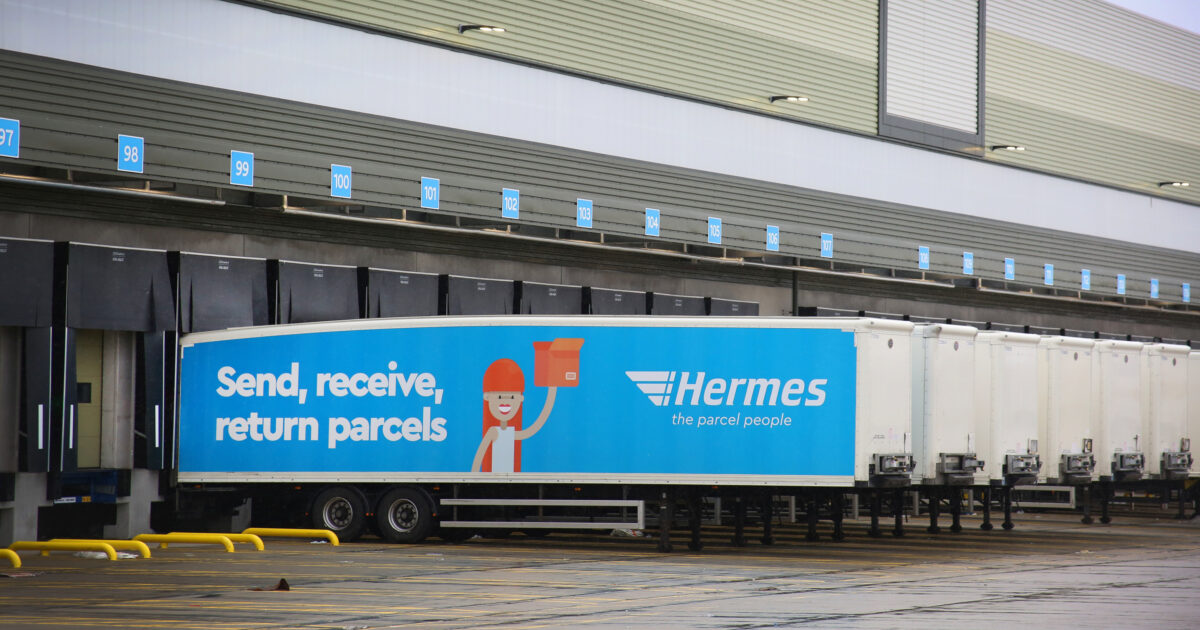
8. Returns
Regarding returns, it is important to learn and understand the return rate and legislation of the country or countries your business is selling to. Make sure to have a transparent process and policies to handle returns and communicate them clearly to customers.

9. Insurance
Insurance is an aspect that is not necessarily needed. It depends on the value of the products you sell. It is crucial to consider evaluating if shipping insurance is necessary based on the product’s value and the loss/damage rate your business has experienced. If the rate of loss/damage is too low and the product’s value is not significantly high, then it is not worth spending on insurance.
Some cross-border solutions like BorderGuru have less than a 1% loss/damage rate, making it possible for businesses to add that percentage to their loss/damage concept in their budget and save by not paying extra fees on insurance.

10. Taxes & duties
Tax laws vary among countries. You should be aware of them, but trying to manage international taxation on your own is not recommended. Cross-border solutions such as BorderGuru can file taxes, making it easy for your business. It also provides your customers with accurate information about taxes and duties to be paid at checkout and customs-cleared orders, so they do not have to worry about additional fees at the delivery time. This will give your business and customers a better shipping experience.
Selling international comes with some hurdles, but you don’t have to do it alone. BorderGuru, as a cross-border solution, can facilitate international shipping for your business and your customers.
Our solution offers competitive shipping costs and calculates taxes, duties, delivery times, and guaranteed customs-cleared orders at checkout.
Contact us now and start growing your international reach!







